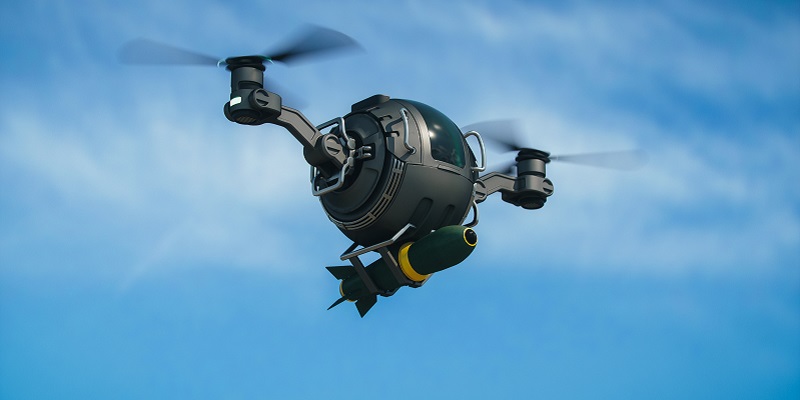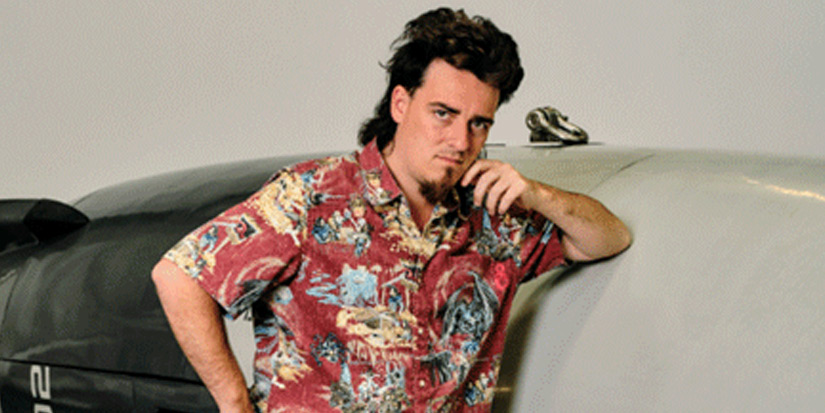It’s a modern-day gold rush...
The starting gun has already been fired...
And investors who know where the “puck” is going stand to come out on top.
Regular RiskHedge readers know all about the massive opportunity in artificial intelligence (AI).
AI startup funding soared 10X over the past three years. Generative AI companies are now valued at $48 billion, up from $8 billion in 2021. I’ve heard OpenAI, the creator of ChatGPT, is already raking in over $100 million a year in ChatGPT subscriptions.
As someone who’s dedicated my career to disruption investing, it’s my job to alert you to the specific industries and sectors AI will transform over the coming years… so you can pounce when investment opportunities arise.
I’ve already told you how AI is disrupting America’s two most broken industries—healthcare and education. There are so many AI-related advancements happening in these giant sectors that my research notes stretch into the hundreds of pages.
But today, I want to home in on two other industries AI could soon transform beyond recognition… and that could offer some big investing opportunities.
War:
Consider how warfare has evolved due to advances in technology.
Thousands of years ago, wars were fought with hands, sticks, and stones. You had to be close to your enemy to kill. Then, weapons like catapults allowed armies to attack from a small distance.
Wooden battleships came along in the 1800s and allowed armies to weaponize the seas. Automatic guns and long-distance rifles followed and made it possible to fight your enemy from farther away. Then airplanes, helicopters, aircraft carriers, and long-range missiles made it possible to wage war from across oceans.
AI is the next evolution in warfare. It’s enabling militaries to kill individual targets from thousands of miles away.
Ever watched Angel Has Fallen?
The best scene from the movie is when Morgan Freeman (as the US president) is fishing on a lake. Suddenly, a swarm of killer drones approaches and kills most of his protection detail.
AI is turning “slaughterbots” from sci-fi to sci-fact.
The US military used a Reaper drone to assassinate an Iranian general in 2020. Drones almost killed Venezuelan President Nicolás Maduro in 2018. Israel’s Harpy drone can identify targets using facial or gait recognition—and take them out—all without a (human) shot being fired.
AI fighter jets are coming, too.
In 2020, an algorithm created by Maryland-based Heron Systems defeated a seasoned F-16 pilot in simulated aerial combat. It wasn’t close. The AI trounced the human 5‒0.
Due to how rapidly AI can learn, the system had as much experience as a fighter pilot who trained all day, every day, for 31 years.
Think about how this will transform warfare. An F-16 costs $64 million. A pilot’s life is priceless. Both take years to build and train.
Now, you can build swarms of killer drones for 1/100th the cost… in a few months… and it doesn’t matter if they all get shot down. Likewise, you can redesign fighter jets to be unmanned, which cuts a lot of the cost.
The Pentagon will spend close to a billion dollars on an AI system this year. The Navy is building unmanned vessels that can stay at sea for months. The Army is developing a fleet of robotic combat vehicles.
AI is the future of warfare. The next crop of military disruptors will present interesting investing opportunities.
Farming:
In 1840, seven out of every 10 Americans worked on a farm. That number has dropped to less than 2% of the population today.
Yet, America produces more cattle and corn than ever. Technologies like tractors, combine harvesters, and fertilizer made this possible.
Soon, we’ll be eating AI-harvested fruits and vegetables.
John Deere (DE) recently shipped its first fleet of fully self-driving machines. The tractors are equipped with six AI cameras that can maneuver around obstacles.
The on-board AI is also slashing chemical use.
Deere’s “See & Spray” system can distinguish between healthy and unhealthy crops. It allows for targeted bursts of chemicals to be directed at individual plants—slashing herbicide use by up to 90%.
And its AI-equipped combine harvesters automatically alter their own settings to waste as little grain as possible.
John Deere estimates farmers can recoup the cost of buying an AI-enhanced tractor in two to three years. That’s a no-brainer purchase.
Startups are getting into the farming game, too.
UK-based Small Robot Company built an AI system to scan whole fields with centimeter precision. Its “agribots” can cover about 20 hectares a day, mapping the health of every piece of lettuce, broccoli, and cauliflower, along with soil moisture.
And when weeds sprout up, it can zap them into oblivion.
Farming seems like an obscure industry of little importance. But in fact, it is the single most important industry in the world. You could survive without the internet. You can’t survive without food.
Technologies like tractors allowed us to get more out of the same plot of land. AI offers another huge productivity jump.
I’m hopeful this will lead to high-quality food becoming available at low prices. Today’s luxuries will become tomorrow’s basics.
Beyond education, healthcare, war, and farming...
AI is set to disrupt another lucrative industry that’s been dominated by two of the world’s biggest tech companies. More to come; stay tuned...
Stephen McBride
Chief Analyst, RiskHedge
In the mailbag…
Readers are still writing in with comments on our RiskHedge Report, “Not sure where to invest? Follow the $1.2 trillion money trail…” In it, Stephen asks whether you believe climate change is a hoax or an immanent catastrophe.
Here’s what one reader had to say:
Hi Stephen, another good article. You asked about climate change—I’m in the middle (not on the fence). I think it’s real and will evolve our living conditions, but I don’t see a pending catastrophe.
I tell my kids not to pay too much attention to all the hype about doom happening if we don’t do “X” by a specific date because that’s the only way anyone gets attention.
Yes, I think we as a society need to make changes to reduce carbon emissions, and also plan to adjust to the new realities of a warming planet (whether man-made or not). But let’s do it in a reasonable and planned way, rather than splitting into two camps demonizing each other. —John





